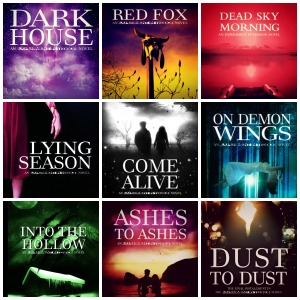I received this book for free from Netgalley in exchange for an honest review. This does not affect my opinion of the book or the content of my review.
Published by Penguin Canada on February 16th 2016
Genres: Fiction, General, Suspense, Thrillers
Pages: 256
Format: eARC
Source: Netgalley
Goodreads

A twisted young medical student kidnaps the girl of his dreams and embarks on a road trip across Brazil in the English-language debut of one of Brazil's most celebrated young crime writersTeo Avelar is a loner. He lives with his paraplegic mother and her dog in Rio de Janeiro, he doesn't have many friends, and the only time he feels honest human emotion is in the presence of his medical school cadaver--that is, until he meets Clarice. She's almost his exact opposite: exotic, spontaneous, unafraid to speak her mind. She's working on a screenplay called Perfect Days about three friends who go on a road trip across Brazil in search of romance. Teo begins to stalk her, first following to her university, then to her home, and when she ultimately rejects him, Teo kidnaps her, and they embark upon their very own twisted odyssey across Brazil, tracing the same route outlined in her screenplay. Through it all, Teo is certain that time is all he needs to prove to Clarice that they are made for each other, that time is all he needs to make her fall in love with him. But as the journey progresses, he keeps digging himself deeper, stopping at nothing to ensure that no one gets in the way of their life together. Both tense and lurid, and brimming with suspense from the very first page, Perfect Days is a psychological thriller in the vein of The Talented Mr. Ripley--a chilling journey in the passenger seat with a psychopath and the English-language debut of one of Brazil's most deliciously dark young writers.From the Hardcover edition.
This is the first time I’ve disliked a book so much in a loooooooong time. About a quarter of the way through it, I actually began to wonder if I would even finish. The writing itself was fine, but I was unable to find a connection to any of the characters, and I found the story simultaneously ridiculous and predicable.
I think the author was trying to present the main character, Teo, with overt psychopathology designed to give the readers the creeps. However, his behavior and cognitions were all over the map and didn’t fit any single diagnosis; there were components of paranoid schizophrenia, antisocial personality disorder, and a little bit of the autism spectrum. This resulted in a poorly constructed character who lacked the quintessential charm of a psychopath, and the flawed portrayal of his mental illness failed to draw any sympathy for me. The author succeeded in creating a very creepy character without any nuance, and, for me, it was just a little too much.
After finishing, I was struck by a thought about what makes psychological thrillers, well, thrilling. With stories like this one, there needs to be some degree of reality; that what makes it terrifying is that it could actually happen. There problem with Perfect Days is that it’s too fantastical to even be possible, and that bothered me.
Overall, definitely not a favorite of mine. I hate to be the Bad News Bee, but I don’t recommend this title.
SN: Normally, I wouldn’t comment on formatting of an e-ARC. I expect errors and funky formatting because I know what I’m reading isn’t the final, polished product. Having said that, the lack of some basic editing made this already difficult read more difficult. Most notably, there were editorial notes about the translation that hadn’t been removed, which were confusing and incredibly frustrating.

















